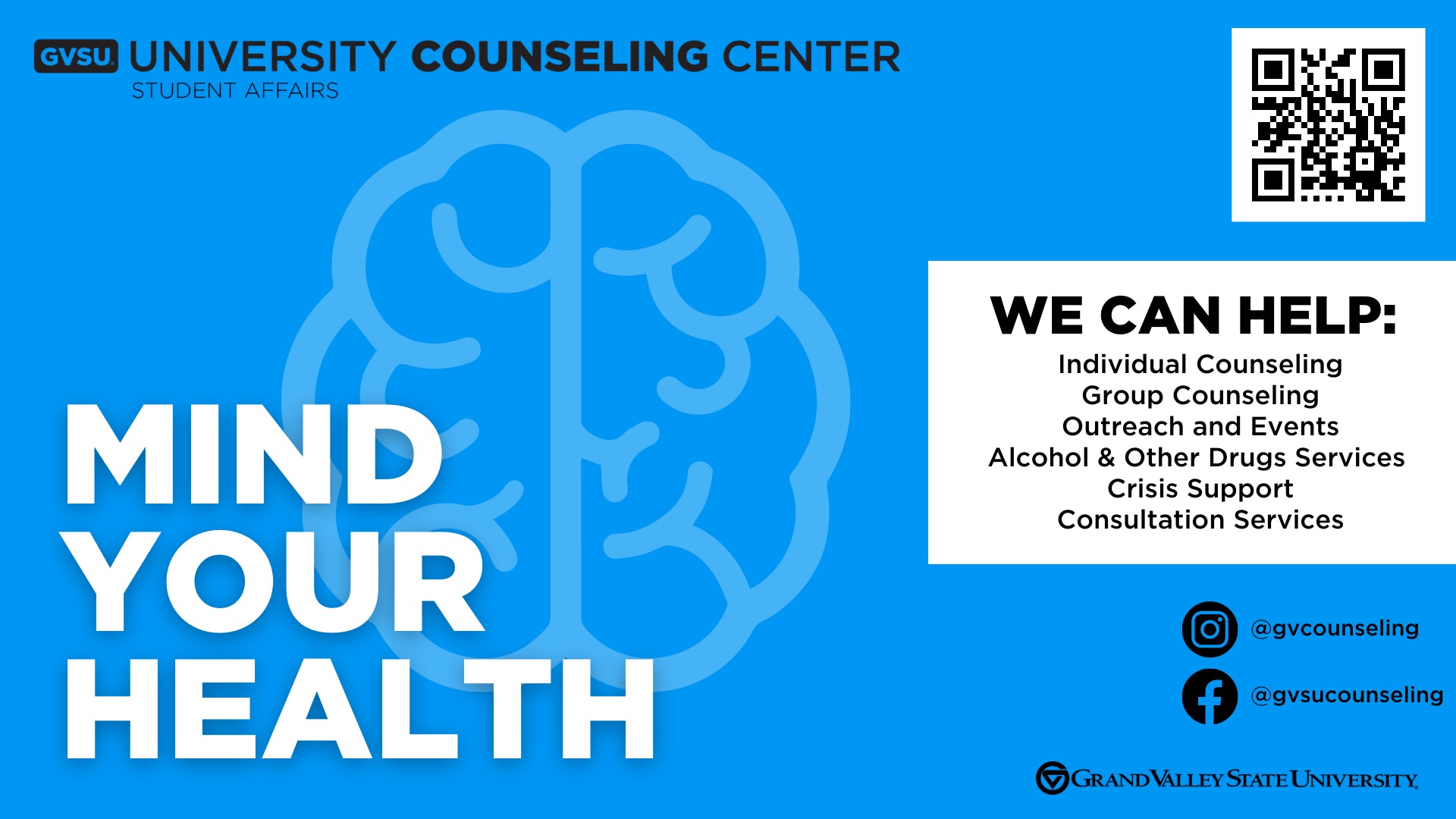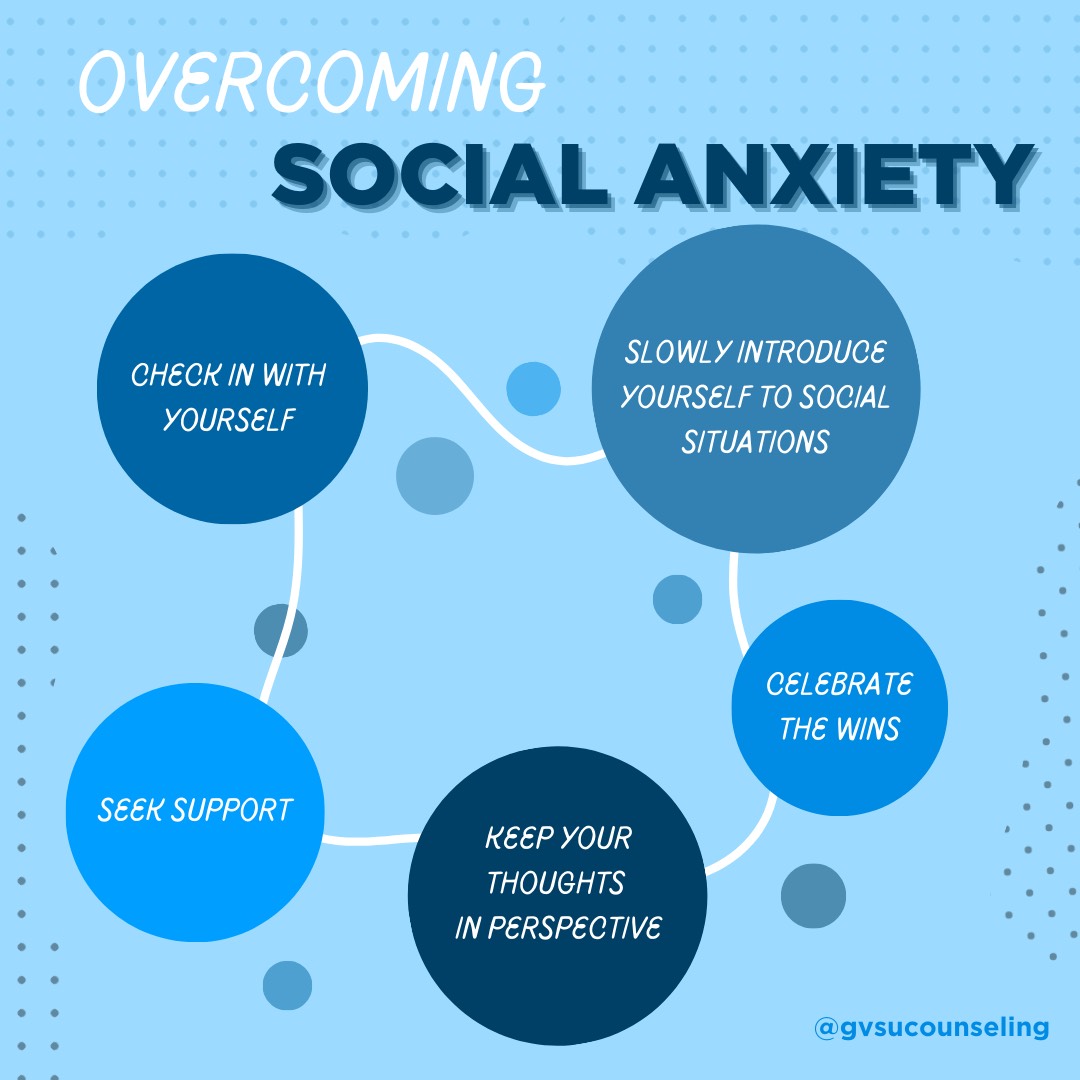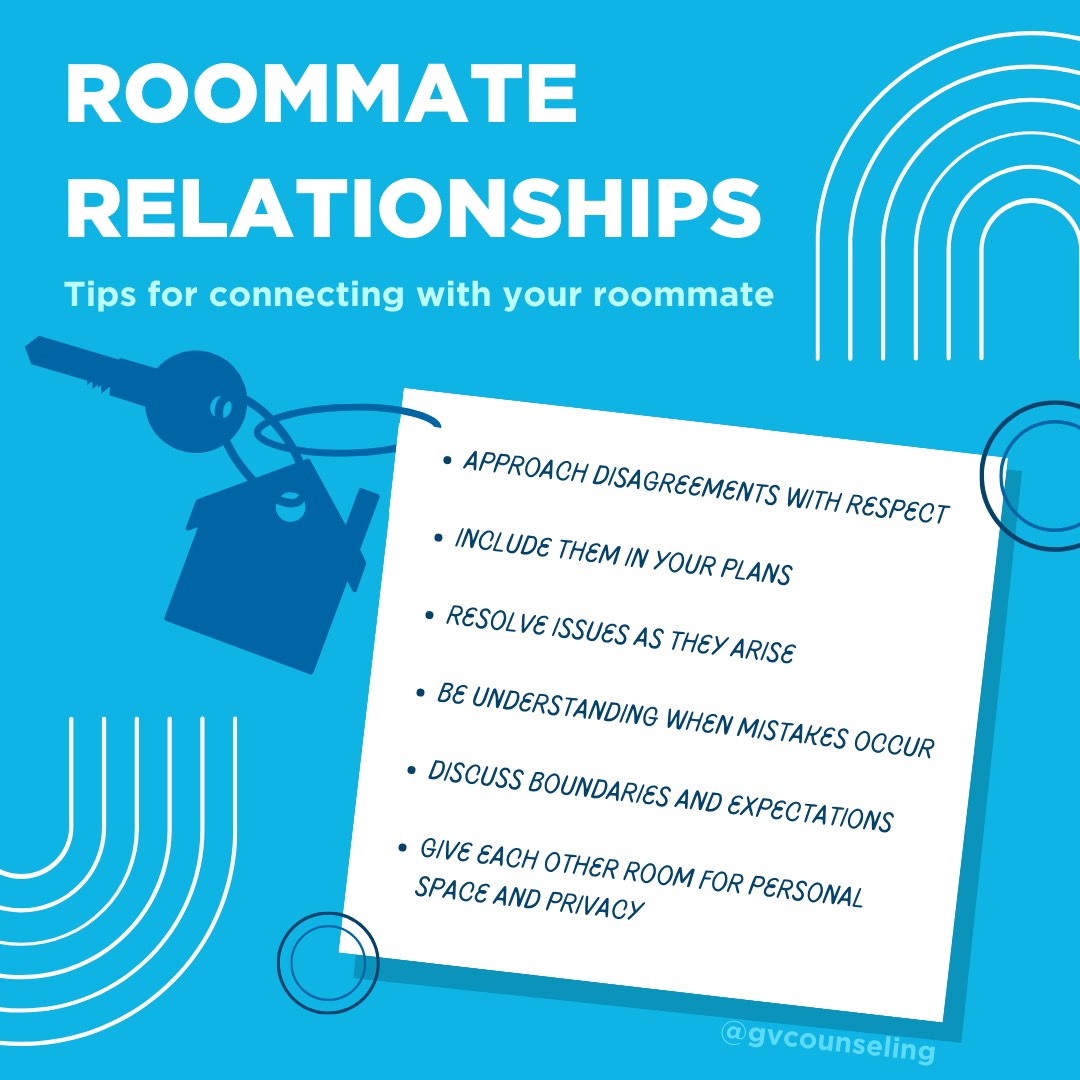Mental Health Communications Toolkit: August
UCC Services
Please feel welcome to save and use the image to your right in your lecture slides, add to Blackboard, etc.!

Overcoming Social Anxiety
Block parties, and student orgs, and floor meetings, oh my! The beginning of the year is filled with excitement, and oftentimes, also overwhelm. You may be feeling particularly uneasy if you experience some level of social anxiety. Alone time is completely okay, but if you're ready to meet new people and socialize, here are a few ways to manage some of the discomfort that may arise. At first it may not be easy, but when the time comes, you can feel confident in trying out these tips from the University Counseling Center.
- Slowly introduce yourself to social situations. It's okay to go into a social event with a plan to spend just a half an hour to test the waters before going all in!
- Keep your thoughts in perspective. The idea of going to an on-campus event may have you feeling worried about embarrassing yourself, or fearful that others may notice your anxiety. Taking time to evaluate these thoughts and challenging them can be challenging, and also very rewarding!
- Check in with yourself. Practice mindful breathing to help regulate your nervous system.
- Celebrate the wins. Commend yourself for taking the leap and getting out of your comfort zone!
- Seek support. If your concerns negatively impact your wellbeing, reach out for help. The University Counseling Center is here for you!

Roommate Relationships
Whether you are living on or off campus with others, having roommates can be both rewarding and difficult at times. Try out these suggestions from the University Counseling Center to create a communicative and understanding living environment! Remember your roommates’ positive attributes and reflect on your own habits so your home remains an enjoyable place to be for all!
- Approach disagreements with respect. Respect is fundamental to any healthy relationship, and must be evident even when you may be at odds with another person.
- Include them in your plans. Letting a roommate know the you may be home late, or asking before inviting a large group into your space can ensure you stay on the same page.
- Resolve issues as they arise. Resentment may grow in cases where conflict is avoided. Creating space for dialogue when issues come up can squash the possibility of future concerns.
- Be understanding when mistakes occur. No one is perfect!
- Discuss boundaries and expectations. Discussing these topics rather than making assumptions provides clear boundaries and can help with forming a routine.
- Give each other room for personal space and privacy. Even the best roommate matches don't need to see each other 24/7! Plan for times when each person may be able to spend some time alone in the common areas like the living room and kitchen, and make sure all are aware of expectations regarding personal rooms.

Adjusting to College
College is an exciting time of life! Beginning college provides many opportunities for growth and new experiences. However, the transition to college is an adjustment for all students. Most students encounter obstacles or difficulties that they did not anticipate. Leaving home to go to college can be a stressful experience. You may feel sad, uncomfortable, and homesick. You may also not feel secure in your new environment. Furthermore, adapting to the increase in academic demands is a challenge for many students. You may find that it is difficult to balance work, family, and school, leaving little time for rest or relaxation. Your role in your family may also have to undergo some changes as you shift into a student role, which can cause increased stress for yourself and family members. These experiences and feelings are a normal part of the transition to college. Keep this in mind: Struggling is not a sign of weakness or failure. In fact, struggling is usually the first step of developing a new strength or coping strategy!
If you are struggling with the transition to college, there are several things that you can do to make the adjustment a little bit easier:
- Increase your campus involvement by taking advantage of the resources available to you. Attend events on campus or join a club or organization to build connections and make new friends.
- Seek support when needed. Seek out people who understand what you are going through, such as an advisor, RA, or counselor.
- Prioritize self-care. Make sure that you make time to rest, eat, and exercise.
- Seek out resources on campus that can help you address academic and personal challenges. These resources include, but are not limited to, your advisor, the University Counseling Center, the Career Center, the Student Academic Success Center, and Disability Support Services.
- Be realistic about your expectations of college. Expecting things to be perfect or to feel great all of the time may set you up for disappointment. Know that it is normal to experience some discomfort during this time.
- Be patient. Allow time to get used to your new environment.
- Ask for help. You are not alone, and those around you can provide some support along the way!

